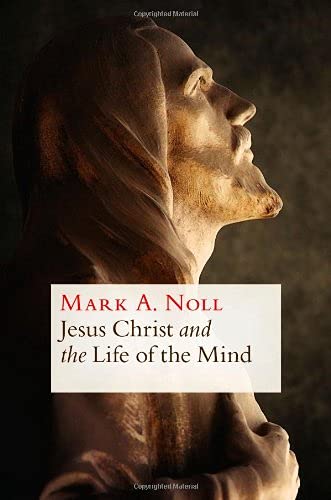Jesus Christ and the Life of the Mind By: Mark A. Noll (Grand Rapids: Wm. B. Eerdmans Publishing Company, 2011)

Christians and non-Christians alike far too often underplay the importance of reason for the Christian life. Christians speak of faith in ways that undermine the use of the mind, using terms like “blind faith” and calling for the disciple of Jesus to “only believe”. Non-Christians hear this, and, admittedly carrying their own biases, gladly accept the pablum that Richard Dawkins and others feed them about Christians who believe the most insane and ridiculous things because they are unwilling to think.
Mark Noll, who in his 1994 book The Scandal of the Evangelical Mind chastised the evangelical world for indeed not thinking often or well enough, has now written a follow-up of sorts, outlining a clear and consistent basis for the use of the mind in Christian life. As many reviewers have pointed out, this book is so much more than just a sequel; in fact a postscript is devoted specifically to “updating” the life of the mind among evangelicals and their institutions. The substance of the book lays out the Biblical, historical and theological foundation for a Christian engagement with the modern world.
After an introductory chapter, the book’s next three chapters form the heart of Noll’s argument: the basis for what he calls “serious learning” is found in the person and work of Jesus Christ. His sources for this viewpoint are the Bible, the Christian tradition and a variety of doctrinal discussions particularly focusing on the Incarnation and the Atonement. Noll’s case is laid out clearly, cogently and convincingly, and though the book is brief, his reasoning does not demonstrate any gaping holes. Kudos for achieving the almost impossible.
Chapters five through seven take three academic disciplines—history, science (i.e. “hard” science), and Biblical studies—and attempt to demonstrate the difference applying the kind of Christological principles he has outlined earlier makes to the practice of those disciplines. Again, well worth the read. After a concluding chapter entitled, “The Way Ahead”, Noll offers the postscript mentioned above and a nice, brief bibliography of “further reading” that provides a number of books (but not too many!), which will lead interested readers of all types further both in the study of Christology and of Christian learning.
This book will serve as a very useful resource for a discussion group at any level above high school, and it will be a resource for years to come.
Drew Trotter